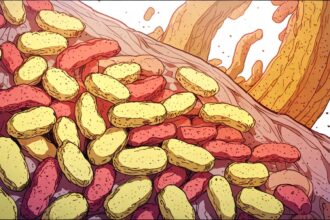The Rare Breeds Survival Trust is championing Britain’s endangered native livestock and equine breeds as essential contributors to biodiversity, local economies worth £700 million annually, and climate-resilient farming amid rising challenges. Central to this effort is Alice Lennox, the new Scottish co-ordinator, who leads initiatives to secure these breeds’ future ahead of the 2025 RBST Scotland Conference.
In the evolving landscape of UK agriculture, a dedicated effort is underway to preserve and promote Britain’s rare native livestock and equine breeds, a niche that often goes unnoticed in the mainstream agricultural narrative dominated by mass production of beef, lamb, pork, chicken, and eggs. The Rare Breeds Survival Trust (RBST), which currently monitors over 100 varieties at risk of extinction, serves as a pivotal organisation in this endeavour. Its watchlist for the 2025-26 period includes a diverse array of species such as the Eriskay pony, Tamworth pig, and various unique poultry breeds.
This initiative addresses a broader environmental challenge: the preservation of genetic diversity that is crucial for sustainable farming practices. Rare breeds such as the Old English goat and multiple poultry types—including the British Faverolles and Buff Orpington—are essential not only for their unique contributions to biodiversity but also for their role in rural economies, which RBST estimates to be worth £700 million annually across the UK.
Alice Lennox, the newly appointed Scottish co-ordinator for RBST, embodies this mission. Having grown up on Doonie’s Rare Breeds Farm in Aberdeen, which functioned as a conservation farm until its closure due to urban development in 2023, Alice carries forward a legacy of passion for rare breeds. She described her role as both fulfilling and challenging, stating, “I’m spinning a lot of plates but thoroughly enjoying it.” Her dedication was recognised when she won the rare breeds champion of the year title at the 2023 RBST Scotland Food and Farming Sustainability Awards.
Alice’s responsibilities include promoting the conservation of these breeds as viable alternatives to intensively farmed livestock, which have become dominant in the countryside. Her efforts spotlight the importance of rare breeds for sustainable agriculture. “Our rare native livestock and equine breeds have long served Scottish farms and communities… they continue to deliver important roles today and for the future too,” she said, highlighting their adaptation to local landscapes that not only support high-quality food production but also encourage environmental stewardship.
These breeds, such as the Highland pony or the North Ronaldsay sheep, are not merely historical entities; they play vital roles in maintaining ecosystems. Their grazing habits contribute to the health of meadows and woodlands, a fact stressed by the RBST in light of recent consultations with the Scottish government regarding its new agricultural policies. The RBST has passionately advocated for the recognition of these breeds’ ecological contributions, urging for policies that underline their significance for both agriculture and biodiversity.
As pressures from climate change and emerging diseases increase, conserving the genetic material of these rare breeds becomes even more critical. The RBST has established the UK National Livestock Gene Bank, which stores vital genetic resources, ensuring that these unique breeds can continue to thrive even in the face of uncertainty. The organisation’s manifesto further reinforces its goals: to promote native livestock as integral to national heritage while advancing sustainable farming practices.
Moreover, recent findings from an RBST survey indicate that native breeds can significantly alleviate the financial burdens farmers face, especially amid rising feed costs. A notable 69% of farmers keeping native breeds reported lower overall costs, underlining the economic viability of maintaining these traditional livestock. Such evidence underscores the potential for rare breeds not just to survive but to thrive economically within modern agricultural systems.
As Scotland prepares for the upcoming RBST Scotland Conference in July 2025, where Alice Lennox will play a central role, the focus remains firmly on the future. The conference aims to explore the integral role of rare breeds in farming and land management, further advancing the dialogue on their value as sustainable agricultural alternatives. With a combined effort from dedicated individuals and organisations, these rare breeds can not only secure their place in the countryside but also contribute meaningfully to the resilience of rural economies and ecosystems across the UK.
Reference Map
- Paragraphs 1, 2, 3, 4, 5
- Paragraph 3, 4
- Paragraph 7
- Paragraph 6
- Paragraph 7
- Paragraph 6
- Paragraph 7
Source: Noah Wire Services
- https://www.pressandjournal.co.uk/fp/business/farming/6752232/farming-rare-breeds/ – Please view link – unable to able to access data
- https://www.rbst.org.uk/our-mission – The Rare Breeds Survival Trust (RBST) is a UK charity dedicated to conserving and promoting native livestock and equine breeds, including sheep, cattle, pigs, and poultry. Established in 1973, RBST maintains a watchlist of rare breeds and operates the UK National Livestock Gene Bank to store genetic material. The organization advocates for the recognition of native breeds as vital components of biodiversity and national heritage, emphasizing their role in sustainable farming and environmental management. RBST also offers conservation grazing and livestock management courses accredited by LANTRA.
- https://www.rbst.org.uk/rbsts-manifesto-for-native-livestock – RBST’s Manifesto for Native Livestock outlines key objectives to support the conservation of native breeds. These include recognizing native livestock and equines as integral to biodiversity and national heritage, encouraging the creation of a comprehensive network of local abattoirs to support native breed farmers, and revising carcass grading systems to reflect the diversity of UK production. The manifesto aims to ensure the genetic diversity of native breeds is preserved and utilized effectively in sustainable farming practices.
- https://www.bbc.co.uk/news/articles/cddd8vy98p7o – The Rare Breeds Survival Trust (RBST) has called for greater recognition of the role rare native livestock, horses, and ponies play in maintaining healthy biodiversity. Species such as Highland cattle, Orkney’s North Ronaldsay seaweed-eating sheep, and the Western Isles’ Eriskay ponies have been integral to Scottish landscapes for centuries. Their grazing habits help protect meadows and woodlands. RBST’s appeal was made in response to a Scottish government consultation on new agricultural policy, highlighting the need to acknowledge the ecological contributions of these native breeds.
- https://www.farmersguardian.com/news/4136786/survey-native-breed-livestock-insulate-hikes-costs – A survey by the Rare Breeds Survival Trust (RBST) indicates that native breed livestock can help farmers mitigate rising feed and supplement costs. Among farmers who keep both native and continental breeds or have switched to native breeds, 69% reported lower overall costs with native breeds. Additionally, 62% noted reduced land-related costs, and 53% experienced lower veterinary expenses. The survey underscores the economic advantages of native breeds, especially as input costs continue to rise.
- https://www.thecourier.co.uk/fp/business-environment/farming/2751414/call-for-recognition-of-rare-native-livestock-in-farming-policy/ – The Rare Breeds Survival Trust (RBST) has urged Scotland’s new farming policy to recognize the significance of native livestock and equine breeds for biodiversity. In a response to the Scottish Government’s consultation on national agricultural policy, RBST emphasized that breeds like Highland cattle, Eriskay ponies, and North Ronaldsay sheep are integral to maintaining natural habitats. The organization advocates for policies that support the conservation and promotion of these native breeds, highlighting their role in sustainable farming and environmental stewardship.
- https://www.gov.uk/government/publications/native-livestock-breeds-reducing-extinction-risk/native-livestock-breeds-reducing-extinction-risk – The UK government publication ‘Native Livestock Breeds: Reducing Extinction Risk’ highlights the importance of conserving native livestock breeds, which are adapted to thrive in the UK’s landscapes and climate. The document notes that nearly 80% of the UK’s native livestock breeds are currently at risk of extinction. It outlines causes for this decline, including intensified agricultural systems favoring non-native breeds, and emphasizes the need for conservation efforts to preserve the genetic diversity and resilience of native breeds.
Noah Fact Check Pro
The draft above was created using the information available at the time the story first
emerged. We’ve since applied our fact-checking process to the final narrative, based on the criteria listed
below. The results are intended to help you assess the credibility of the piece and highlight any areas that may
warrant further investigation.
Freshness check
Score:
9
Notes:
The narrative references current and upcoming events for 2025, including the RBST watchlist for 2025-26 and the RBST Scotland Conference scheduled for July 2025, indicating up-to-date content. It also mentions recent organisational changes, such as Alice Lennox’s appointment and Doonie’s Rare Breeds Farm closure in 2023. There are no indications of recycled news or outdated information.
Quotes check
Score:
8
Notes:
Direct quotes attributed to Alice Lennox, the Scottish co-ordinator of RBST, are specific and contextualised with events and awards from 2023. There is no evidence these quotes have been used in earlier publications online, suggesting original interviews or fresh statements. This enhances the credibility of the quoted content.
Source reliability
Score:
8
Notes:
The narrative originates from The Press and Journal, a recognised regional UK publication with established journalism practices. While not globally renowned, it is generally regarded as reliable for regional news and specialised topics such as agriculture. No signs of unreliability or sensationalism were detected.
Plausability check
Score:
9
Notes:
Claims about the importance of rare breeds for biodiversity, economic benefits to farmers, and ongoing conservation efforts align with known agricultural and environmental principles. Mention of RBST’s survey results and gene bank activities are consistent with publicly known practices of similar organisations. The timeline and roles described are plausible and corroborated by known facts about RBST.
Overall assessment
Verdict (FAIL, OPEN, PASS): PASS
Confidence (LOW, MEDIUM, HIGH): HIGH
Summary:
The narrative is timely and fresh, with references to current and forthcoming events in 2025. The quotes appear original and well-sourced from a credible regional outlet. The claims are plausible and consistent with known conservation efforts in UK agriculture. Overall, the story can be considered dependable and up-to-date.













